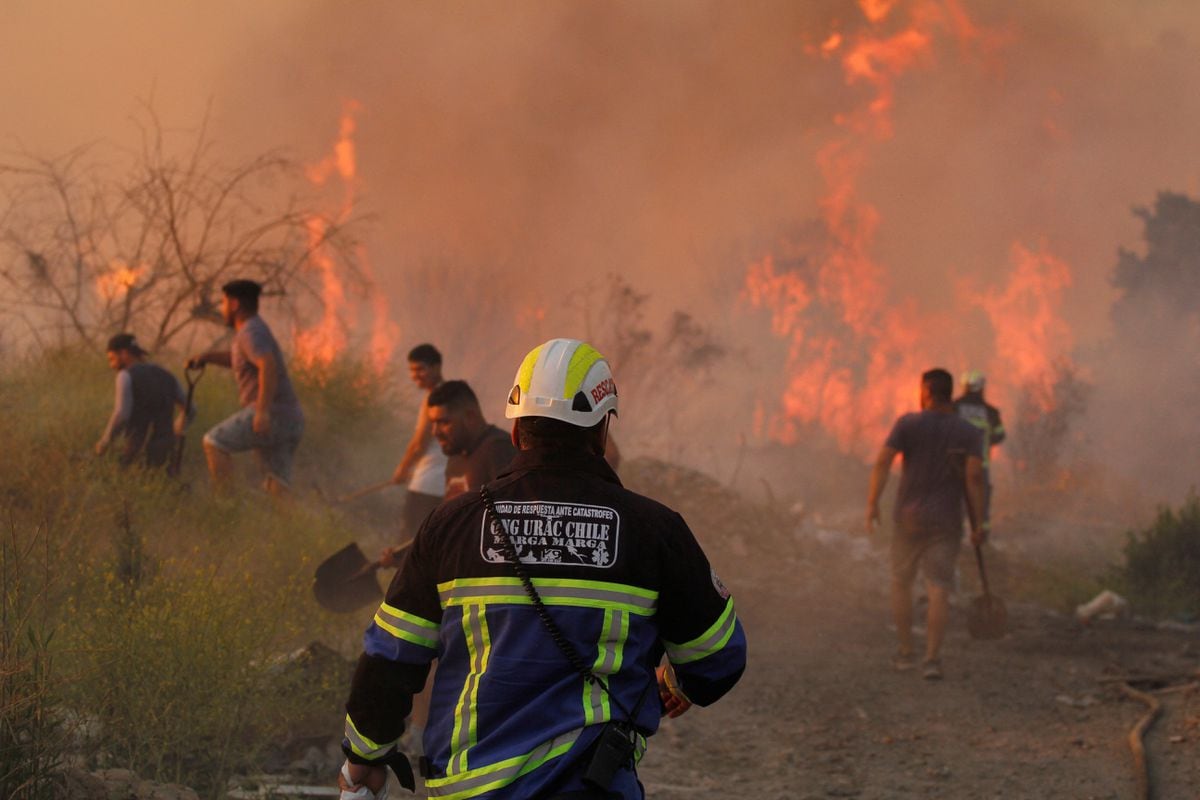During the state visit that the President of Colombia, Gustavo Petro, made to his counterpart, Gabriel Boric, in Santiago de Chile at the beginning of the month, it was learned that both countries had come together to ask the Inter-American Court of Human Rights (Corte IDH), an advisory opinion on the scope of states in terms of their human rights obligations related to the climate emergency.
A query that, in addition, they branded as unprecedented.
The application document is not yet public, but the press teams from both Chile and Colombia have revealed part of the heart of it.
“Both countries live the daily challenge of dealing with the consequences of the climate emergency, including the proliferation of droughts, floods, landslides and fires, among others.
These phenomena reveal the need to respond urgently and based on the principles of equity, justice, cooperation and sustainability, with a human rights approach”, reads one of the paragraphs of the document.
In it, the countries also argue that "these impacts on the environment extend throughout the Americas and the world, generating significant impacts on people's rights and putting future generations at risk."
But in practice, what does this request translate into?
As Mauricio Madrigal, director of the Environment and Public Health Legal Clinic of the Universidad de los Andes in Colombia, comments, it could be said that the origin of this advisory opinion is another document: resolution 3 of 2021 of the Inter-American Commission on Human Rights (IACHR), entitled
Climate Emergency: Scope of Inter-American Human Rights Obligations
, which states that States must put human rights at the center when building policies to deal with climate change, including those that seek to reduce emissions or the right to information and extraterritorial obligations.
So, in simpler words, what Chile and Colombia did is ask the Inter-American Court to help them, as well as other countries, to better understand how to materialize that resolution.
To give you a guide.
Through an email, Ximena Insunza, a researcher at the Center for Environmental Law at the Law School of the University of Chile, explains that there are already a series of issues on which it is known that both countries seek to obtain an answer, such as homework prevention and guarantee of human rights linked to the climate emergency;
the preservation of the right to life and survival in the face of the issue and the differential obligations of States with respect to the rights of boys, girls and new generations in the face of the climate crisis.
Gabriel Boric and Gustavo Petro, talk during a meeting at the Palacio de la Moneda, in Santiago, Chile, on January 9, 2023. Cristobal Olivares (Bloomberg)
In addition, they ask for help on how to guarantee consultation and judicial procedures, shared and differentiated responsibilities between States and the protection of environmental defenders, including women, indigenous peoples and Afro-descendant communities.
This, taking into account that, according to data from organizations such as
Global Witness,
Latin America is the deadliest region for environmental leaders.
"It is worth noting that this is a consultation that talks about intersections, such as gender issues or ethnic issues," adds Madrigal, who is already working with a research hotbed to be able to provide input to the Court, from which He hopes to have an answer in about a year and a half.
"In addition, it is important because it puts [the agreement of] Escazú at the center for the first time," he says.
Despite the fact that Colombia and Chile were among the last to approve the ratification of this treaty, the new governments of both countries now want to take the lead for its implementation.
Despite the fact that this request is important and key, Rodrigo Uprimmy, lawyer and co-founder of Dejusticia, a Colombian legal studies center, clarifies that it is not the only scenario in which these concerns are being raised.
In July of last year, for example, the Republic of Vanuatu, in the Pacific Ocean, did something similar, but before the International Court of Justice.
“And various bodies of human rights committees in the United Nations are also looking at the issue of climate change with a human rights approach,” he says.
This, he adds, is a different path from that taken in settings such as the Climate Change Summits (COPs) where they negotiate how to implement the iconic Paris Agreement, since all commitments there are voluntary.
On the response of the Inter-American Court of Human Rights
Regarding the scope of the response of the Inter-American Court, it could be said that there are still doubts.
Uprimmy comments that in the legal world there is some controversy about how to interpret the response of an advisory opinion.
On the one hand, there are those who consider it that: an opinion.
Others, on the other hand, believe that what they say will be binding due to the principle of good faith in the treaties.
“However, there is another thesis and it is the one I would follow.
And it is that these criteria that the Court establishes in a more general way, as responses to an advisory opinion, have a certain legal force.
They are not just a guide that can be discarded, nor are they mandatory, but something in between: authoritative interpretations or what is known as soft law ”, he assures.
The truth is that what the Court says must be, at least, heard by all the countries of the region, beyond Colombia and Chile.

